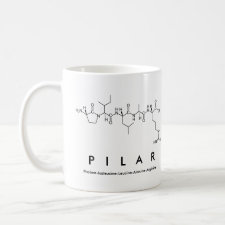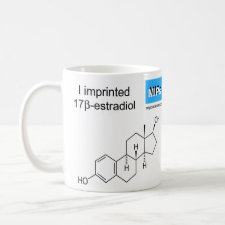
Authors: Gañán J, Morante-Zarcero S, Gallego-Picó A, Garcinuño RM, Fernandéz-Hernando P, Sierra I
Article Title: Evaluation of a molecularly imprinted polymer for determination of steroids in goat milk by matrix solid phase dispersion.
Publication date: 2014
Journal: Talanta
Volume: 126
Page numbers: 157-162.
DOI: 10.1016/j.talanta.2014.03.041
Alternative URL: http://www.sciencedirect.com/science/article/pii/S0039914014002227
Abstract: A molecularly imprinted polymer-matrix solid-phase dispersion methodology for simultaneous determination of five steroids in goat milk samples was proposed. Factors affecting the extraction recovery such as sample/dispersant ratio and washing and elution solvents were investigated. The molecularly imprinted polymer used as dispersant in the matrix solid-phase dispersion procedure showed high affinity to steroids, and the obtained extracts were sufficiently clean to be directly analysed. Analytical separation was performed by micellar electrokinetic chromatography using a capillary electrophoresis system equipped with diode array detector. A background electrolyte composed by borate buffer (25 mM, pH 9.3), sodium dodecyl sulphate (10 mM) and acetonitrile (20%) was used. The developed MIP-MSPD methodology was applied to direct determination of testosterone (T), estrone (E1), 17β-estradiol (17β-E2), 17α-ethinylestradiol (EE2) and progesterone (P) in different goat milk samples. Mean recoveries obtained ranged from 81 to 110%, with relative standard deviations (RSD) £ 12%. The molecularly imprinted polymer-matrix solid-phase dispersion method is fast, selective, cost-effective and environmentally-friendly compared with other pretreatment methods used for extraction of steroids in milk
Template and target information: steroids, testosterone, T, estrone, E1, 17β-estradiol, 17β-E2, 17α-ethinylestradiol, EE2, progesterone, P
Author keywords: molecularly imprinted polymer, Matrix solid-phase dispersion, MEKC, steroids, Goat milk



Join the Society for Molecular Imprinting

New items RSS feed
Sign-up for e-mail updates:
Choose between receiving an occasional newsletter or more frequent e-mail alerts.
Click here to go to the sign-up page.
Is your name elemental or peptidic? Enter your name and find out by clicking either of the buttons below!
Other products you may like:
 MIPdatabase
MIPdatabase









